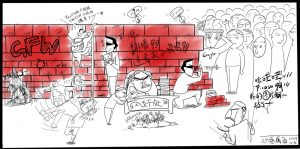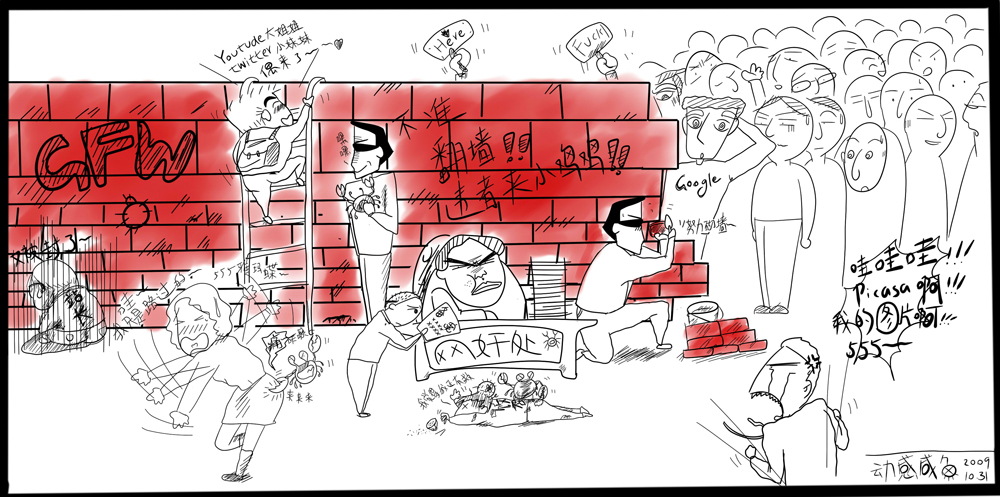The Word of the Week comes from the Grass-Mud Horse Lexicon, a glossary of terms created by Chinese netizens and encountered in online political discussions. These are the words of China’s online “resistance discourse,” used to mock and subvert the official language around censorship and political correctness.

Without the use of special bypassing methods, Facebook, as well as YouTube and Twitter, are blocked by the Great Firewall of China. (Artist: Dongganchengyu 动感成鱼)
qiáng 墙
Perhaps the most commonly used subversive term derived from “wall” is “scale the wall” (fān qiáng 翻墙), which is what savvy netizens must do if they wish to access a page blocked domestically.
In Mandarin, “wall” (qiáng 墙) sounds the same as the word “strong” (qiáng 强), which is itself a component in a number of Chinese words. To make reference to the Great Firewall of China, netizens often substitute the character for “strong” with the character for “wall.” The related netizen term “wall nation” (qiángguó 墙国) plays on the phrase “mighty nation” (qiángguó 墙国), which is often used in official rhetoric portraying China’s rise as its rightful return to superpower status. Other terms include “Wall Nation Forum” (Qiángguó Lùntán 墙国论坛), used to mock overly-nationalistic web users and deriving from a popular state-run media BBS; and “wall-rape” (qiángjiān 墙奸), a reference to the effect the Great Firewall has on sensitive overseas websites.
The homophonous nature of “wall” (qiáng 墙) and “strong” (qiáng 强) allows for an alternate spin on the Cyberspace Administration of China’s 2015 anthem to internet sovereignty, “Mighty Internet Nation“:
Can’t get enough of subversive Chinese netspeak? Check out our latest ebook, “Decoding the Chinese Internet: A Glossary of Political Slang.” Includes dozens of new terms and classic catchphrases, presented in a new, image-rich format. Available for pay-what-you-want (including nothing). All proceeds support CDT.








